April 14, 2025 | 06:17 GMT +7
April 14, 2025 | 06:17 GMT +7
Hotline: 0913.378.918
April 14, 2025 | 06:17 GMT +7
Hotline: 0913.378.918
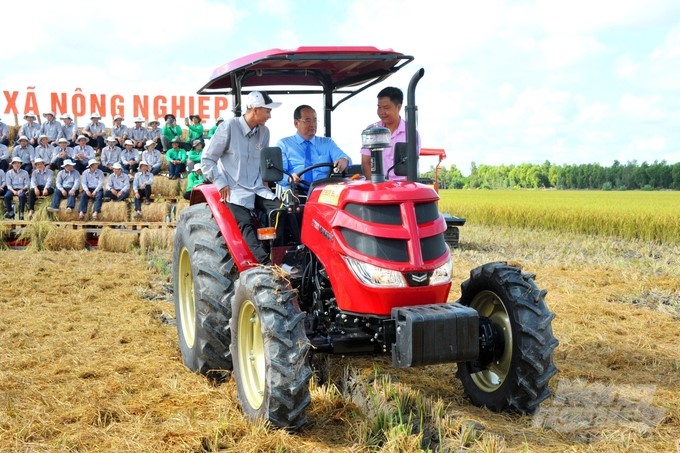
An Giang currently has key commodity industries (rice, pangasius, vegetables) and potential commodity industries (fruit trees, beef cattle, high-tech pigs, edible mushrooms, etc.) that have formed specialized farming areas with linkages along the value chain between businesses and cooperatives. Photo: Le Hoang Vu.
An Giang is one of the localities with advantages in agricultural economic development in the Mekong Delta region. Up to now, key commodity industries (rice, pangasius, vegetables) and potential commodity industries (fruit trees, beef cattle, high-tech pigs, edible mushrooms, etc.) have formed specialized farming areas with linkages along the value chain between businesses, cooperatives, cooperative groups, and producers, positively contributing to the province's economic growth. Thereby, agricultural economic development continues to be the "pillar" of An Giang's economy.
However, besides achievements, agricultural economic development is still unsustainable, and growth is not as expected. Natural disasters, epidemics, climate change, and food safety and hygiene issues always have many potential risks. Especially the process of international economic integration is increasingly deepening, which requires further improved competitiveness of the province’s agricultural products.
Mr. Nguyen Si Lam, Director of the Department of Agriculture and Rural Development, said that in order to aim for sustainable, fundamental, and long-term agriculture, the Provincial People's Committee has issued a Decision approving the Project “Restructuring the agriculture sector for the period 2021–2025, with a vision to 2030. The project unifies the viewpoint of identifying agriculture as the province’s foundation and "economic core". Agricultural development must be closely linked to building new rural areas, promoting farmers' desire to get rich from their own internal resources, creating jobs for rural workers, eliminating hunger and reducing poverty, increasing people’s income, reducing inequality, and ensuring that all people benefit from the development process.
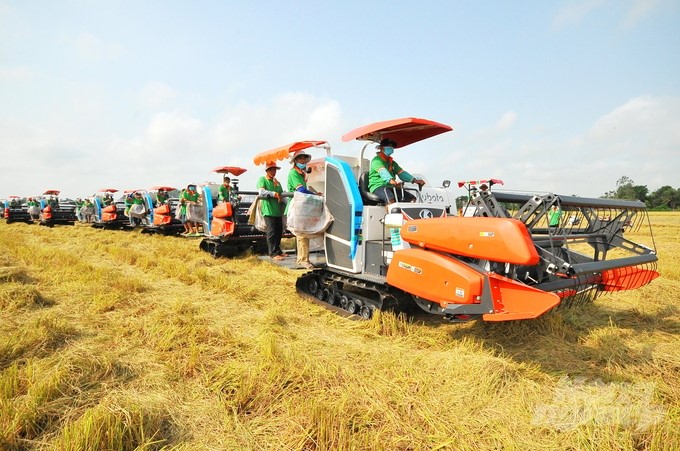
An Giang identifies agriculture as the foundation and “economic core”. Photo: Le Hoang Vu.
Farmers are identified as important subjects in the process of restructuring the agriculture sector. Accordingly, the province will have solutions to attract businesses to invest in the linkage chain of production development, processing, consumption, etc., which is a key factor in promoting the application of scientific, technical, and technological advances, precision agriculture, agriculture 4.0, smart agriculture, digital transformation, etc.
An Giang restructures the agriculture sector in the direction of reducing the area of rice land appropriately, promoting the development of vegetables, fruit trees, aquaculture, and concentrated animal husbandry in a modern, effective, and sustainable direction. Implement the goal of converting thinking from agricultural production to agricultural economics through promoting people’s internal resources and integrating multi-value into products.
In the period 2021–2025, the province aims to maintain a stable average agricultural growth of 2.8%/year (2010 comparative prices) and increase farmers’ per capita income by 2025 to VND 64.5 million/person/year. By 2025, agriculture will basically develop in a modern direction, with applications of science and technology, mechanization, technical standards (GAP, organic, etc.), and international market standards for An Giang’s key commodities.
By 2030, the province’s average gross output of agricultural land will reach VND 280 million/ha, with 150,000 hectares of rice produced according to quality standards and pesticide residue control. Digital transformation will be widely applied in agriculture, rapidly increasing the proportion of high-tech agricultural products. An Giang will become one of the centers for applying science, technology, and digital transformation in agriculture in the Mekong Delta.

Restructuring An Giang agriculture towards strengthening linkages and cooperation. Photo: Le Hoang Vu.
Director of the Department of Agriculture and Rural Development Nguyen Si Lam said that to successfully implement the Project “Restructuring the agriculture sector for the period 2021–2025, with a vision to 2030,” there needs to be synchronous and smooth coordination between ministries, Central branches, and the Mekong Delta region.
In restructuring the agriculture sector, the province creates conditions to attract businesses to invest, link, and cooperate closely with farmers, cooperatives, and cooperative groups. The province considers this an important key to perfecting the sustainable supply chain and creating clean, valuable products that are beneficial to businesses, farmers, and the community. Along with that, strongly develop cooperative economies and cooperatives in a synchronous and diverse manner. The province focuses on developing new-style cooperatives along the industry value chain associated with enterprises' equity participation and developing multi-service cooperatives.
For organizing production following cross-linkage chains, the cooperative represents a group of farmers with the same goal in signing contracts to purchase agricultural inputs at their original price, control the quality, supply them back to farmers, and at the same time provide services in the production process. For vertical linkage, the cooperative represents the producer in signing an output consumption contract with the enterprise.
Translated by Huyen Vu Thu
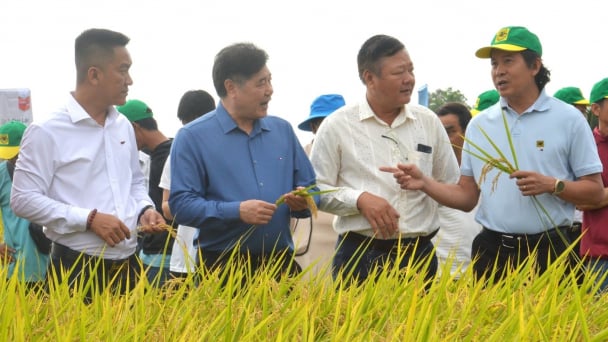
(VAN) The results from pilot fields are catalyzing the expansion of the One million hectares of high-quality, low-emission rice project in Kien Giang.
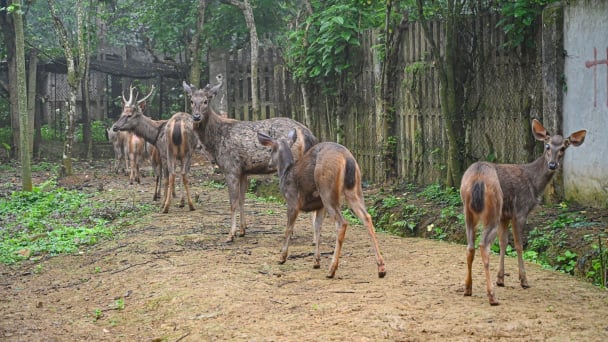
(VAN) On the morning of April 11, Cuc Phuong National Park received 18 individuals of endangered and rare wild animals from Da Nang city.
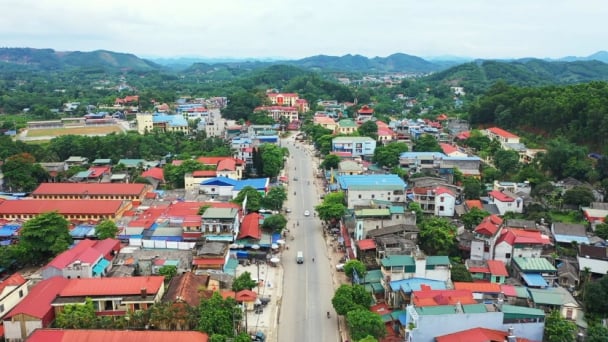
(VAN) FAO supports Vietnam in enhancing survey sampling techniques for the 2025 nationwide agricultural and rural census.

(VAN) By participating in the green transition, manufacturers become an indispensable part of the circular economy, contributing to resource optimization and environmental protection.
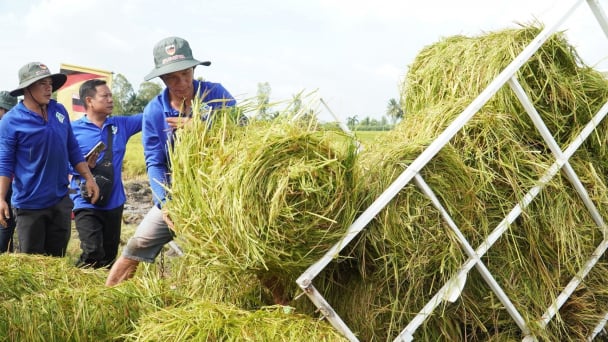
(VAN) The One Million Hectares of High-Quality and Low-Emission Rice Program can generate nearly 14 million tons of straw annually, posing an urgent requirement to diversify straw-based products.
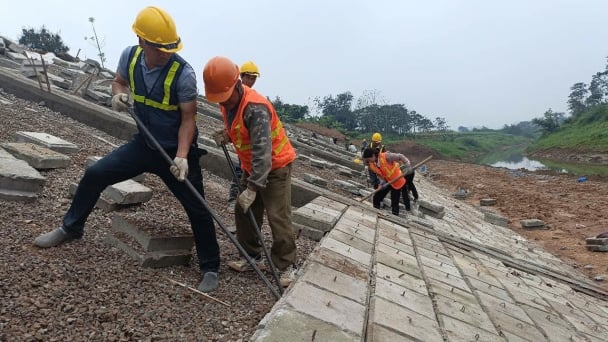
(VAN) This figure was recently announced at a conference held in Yen Bai, focusing on climate-resilient infrastructure development for ethnic minority regions.
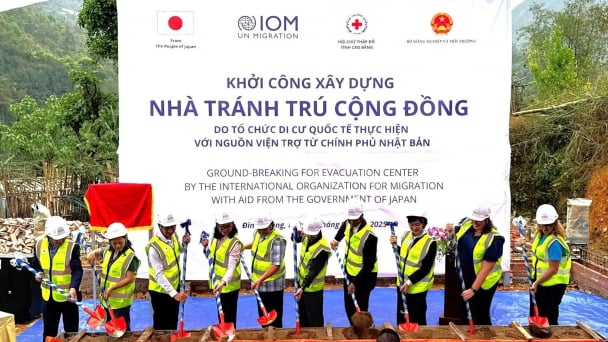
(VAN) The evacuation center is a practical work in efforts to respond to natural disasters and adapt to climate change in vulnerable areas.